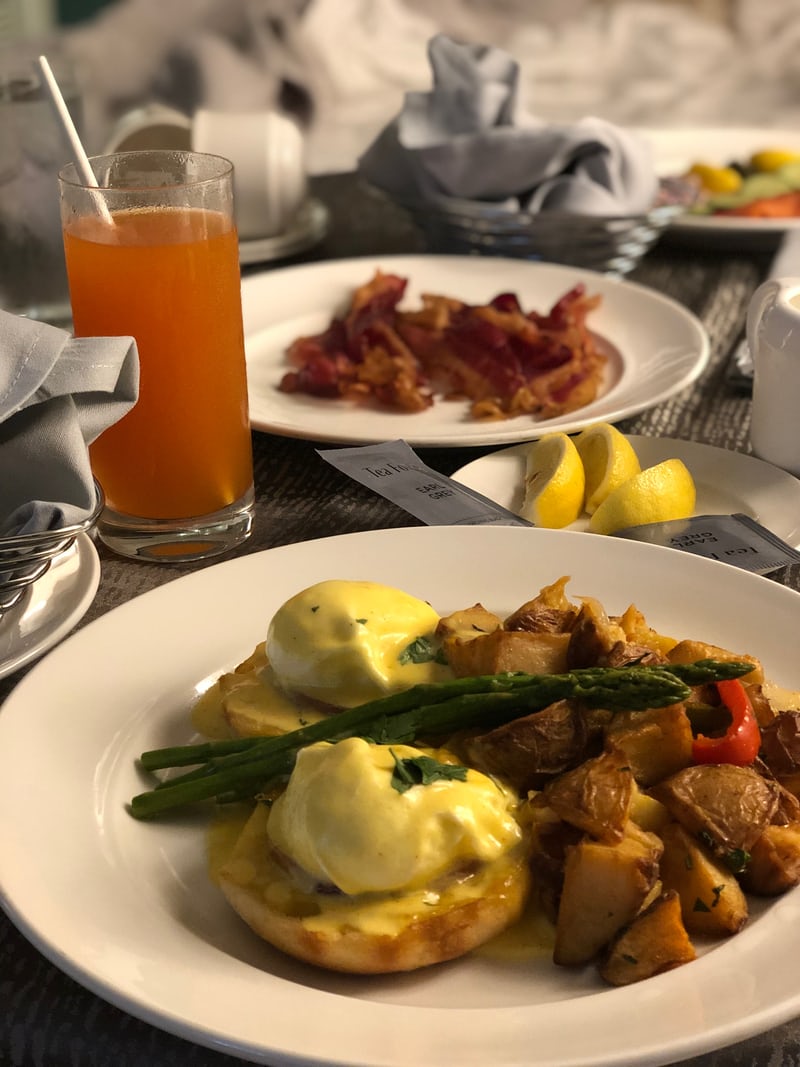February 15, 2022
Interview Tips From the Other Side of the Mic
by Dan Klefstad
 “What did you have for breakfast today?”
“What did you have for breakfast today?”
This is the first question I asked people who came to be interviewed at WNIJ, the NPR station where I had an author interview program. This always-unexpected query immediately prompted a Proustian reverie starring a bagel, cup of coffee, or bacon and eggs. No madeleines appeared, but even the most nervous guest looked and sounded relaxed after declaiming the morning menu. The result was a recording that was more conversation than Q & A, something that engaged listeners and boosted the confidence of my guest. I hope you have a similar experience when you go on the radio, TV or a podcast to promote your book.
Not everyone is comfortable speaking into a microphone and I’m sure introverts are quivering as they read this. Still, we both know interviews are necessary if you want to please your publisher so…take some time to breathe while I recommend the best avenues to pitch.
At first glance, changes in “legacy” media appear to present fewer opportunities for authors. No doubt you’ve heard that local news outlets keep getting acquired by hedge funds and conglomerates. The new owners almost always cut newsroom staff. As a result, the remaining reporters struggle to cover the city council or school board, so any author pitching their novel or memoir can expect a frazzled response -- if they get one at all.
Nevertheless, public radio stations remain an oasis. Many NPR affiliates are teaming up with groups like Report for America which works to stem the proliferation of news deserts. RfA partially funds reporters covering a variety of beats so check if your station has an arts reporter and find ways to connect with them. One journalist worth checking out is Yvonne Boose who hosts a poetry segment on WNIJ. Feel free to pitch her for a virtual interview and reading.
interview and reading.
Another medium that keeps expanding is podcasts, and many well-known personalities are migrating to this newer platform. Longtime radio hosts Bill Turck and Kerri Kendall received CWA’s Spirit Award for 2020 for their support of CWA and Chicago writers on their WGCO program. This year, they plan to re-launch their “Playtime” arts show as a podcast after ending their radio run. Bill is now the host of the new CWA Writes Podcast. Check it out.
It may seem obvious but I cannot stress this enough if you’re invited to an interview: Be on time and prepared. Check the address and driving distance and leave extra time for traffic or weather. If it’s a virtual interview, make sure your family members stay out of sight and earshot. Check your lighting and background, plus appearance. Also, know how you’ll respond to basic questions like what inspired your book. Many interviewers will only have time to read the back cover synopsis so you’ll probably be asked to describe the book during the recording. I recommend limiting your description to thirty seconds, which may require practice. If the interviewer wants more, they’ll ask. And when it comes to reading an excerpt make sure you rehearse a few times before going live. This goes for in-person events too. Nothing bores an audience like a reader mumbling, chin down, while stumbling through their words. Raise your head and make eye contact now and then. Reading aloud is a performance and you’re there to close the deal with book buyers. If you’re uncomfortable reading in public, try practicing in front of a friend or on video. As a last resort borrow this trick attributed to Winston Churchill who, legend has it, defeated his fear of public speaking by imagining his audience in their underwear.
Certain topics or genres lend themselves to a seasonal hook. If you wrote a horror story, October is the obvious time to book an interview. A beach read begs for June. And any story set during Thanksgiving or Christmas has a built-in audience. Just make sure you send your pitch at least a month beforehand.
Checking back with our introvert friends…How are you doing? Feeling ready? Here’s a tip for flipping the script when the recording starts: Be the first to ask, “So what did you have for breakfast today?” It’s a great way to break the ice. If you’re facing an inexperienced reporter who might be more nervous than you, they might feel steadier after answering. You’ll create a trusting space for both of you and the interview should go smoothly.
Extra points if their response includes the madeleine that always eluded me. Now lean toward the mic – but not too close -- and knock ‘em dead.

Dan Klefstad is a longtime radio host and newscaster at NPR station WNIJ. His latest novel, Fiona’s Guardians, is about humans who work for a beautiful manipulative vampire. The book was praised by the Chicago Writers Association’s Windy City Reviews, which likened his words to “tiles in an intricate and elaborate mosaic.” Klefstad’s novel started as a short story, “The Caretaker,” published by Crack the Spine in 2017. It was later adapted by Artists’ Ensemble Theater for their Mysterious Journey podcast. He writes in DeKalb, Illinois.
Affiliates/Partners
Testimonials
Contact
Join CWA
Member Directory
My Account
Writers Conference
Presenters
Agents and Publishers
Pitch Sessions
Sponsors
Scholarships
Speaker Registration
Book of the Year
Spirit Award
First Chapter Contest
Resources
Home
Chicago Writers Association
info@chicagowrites.org
Make a Difference!


Comments
Nancy Chadwick on Tuesday, February 15, 2022
As an introvert author-friend, I never thought I could really appreciate telling someone what I had for breakfast! Clever. Thanks for sharing these helpful tips.
Comments
Jennifer Worrell on Tuesday, February 15, 2022
Bill Turck and Kerri Kendall are such lovely people. I had the fortune to sit in on a few shows to take notes for a book I’m writing. Glad to see they’re doing a podcast!
Comments
Kathleen on Tuesday, February 22, 2022
Thanks, Dan. Good advice. My dream it to be interviewed on WBEZ for my next novel, a dystopian saga where everyone is Required to be armed. It’s called Mia Unarmed. Does that spark your interest? Just wondering. Enjoying the podcast.
Kathleen